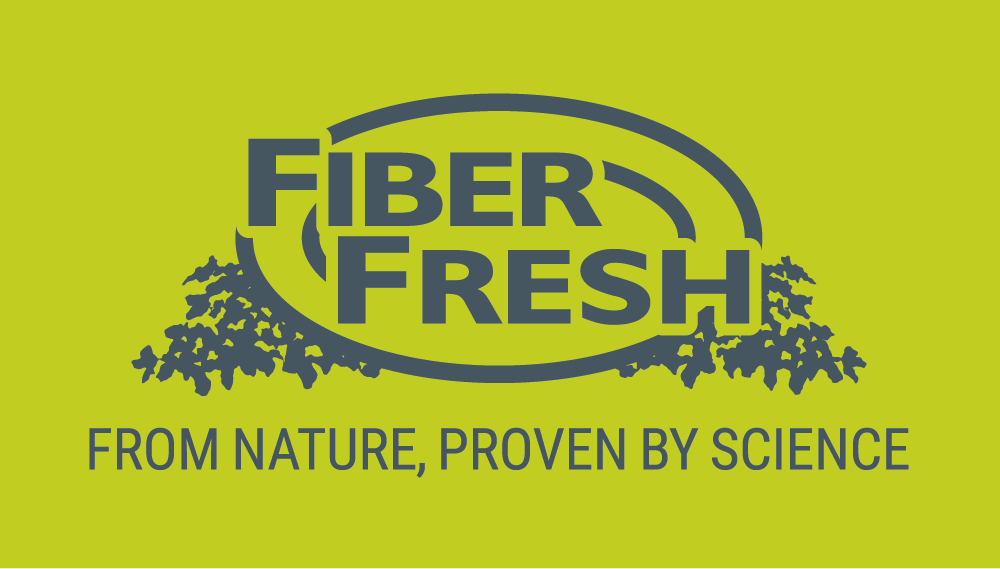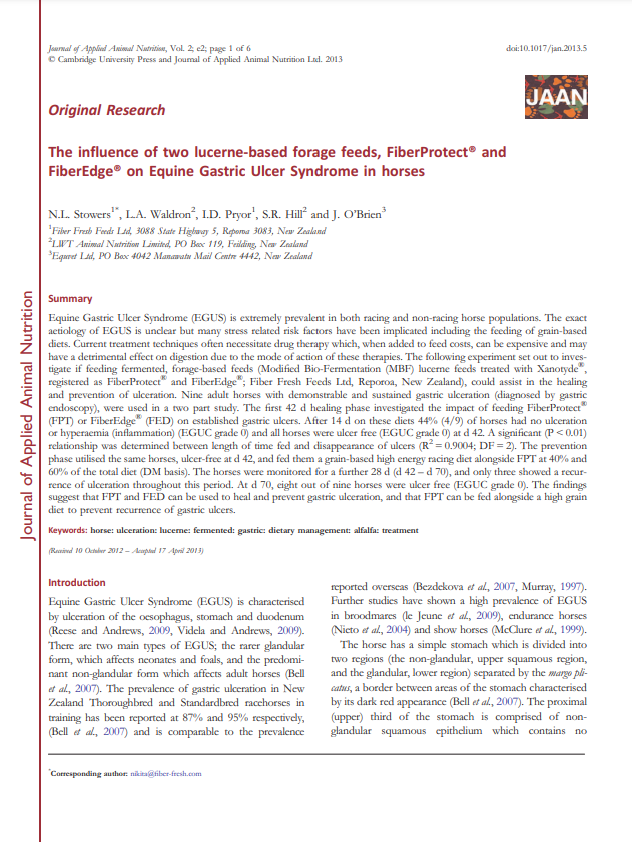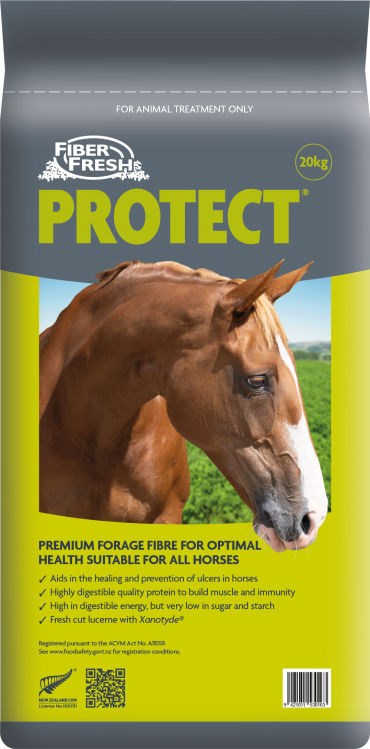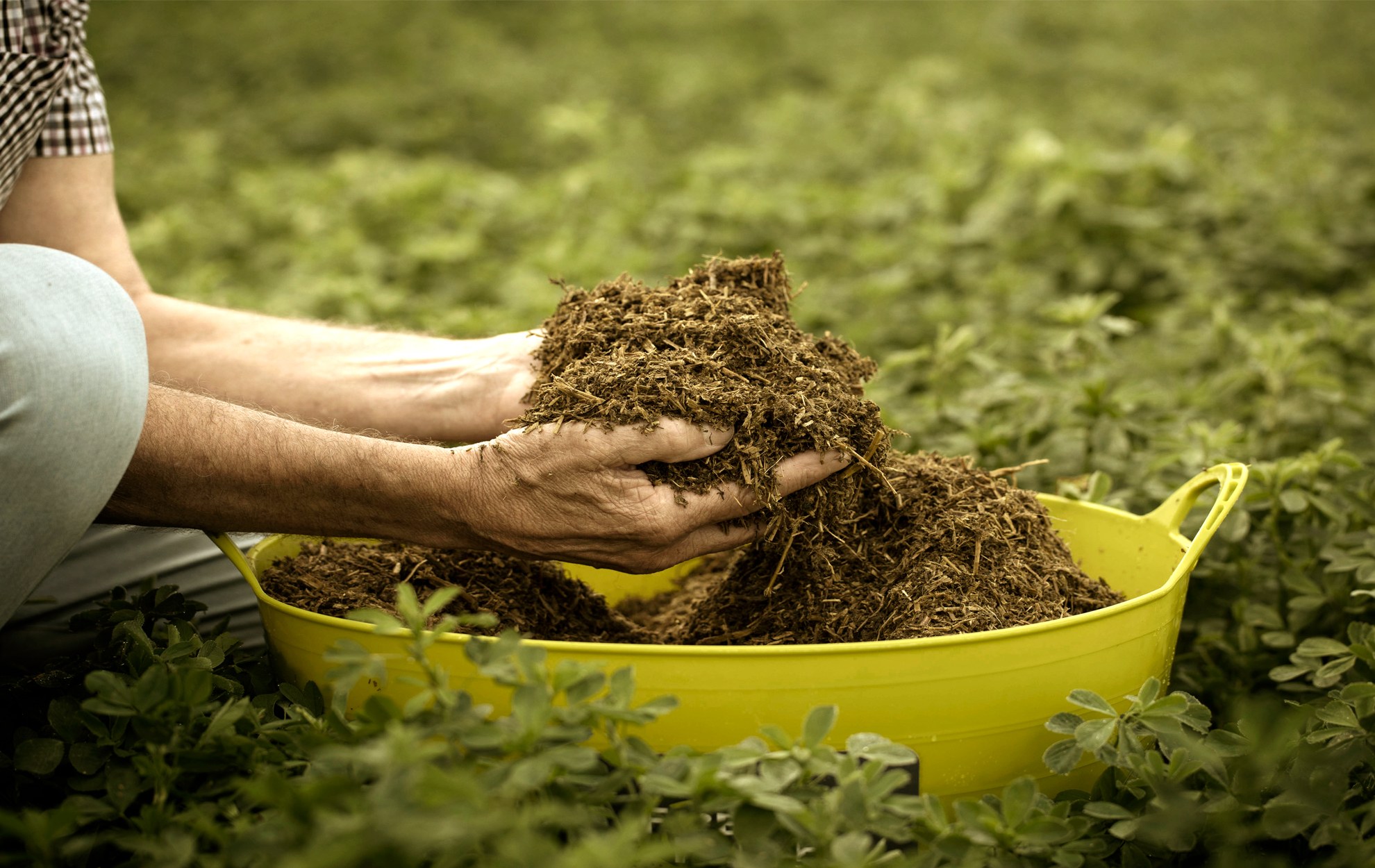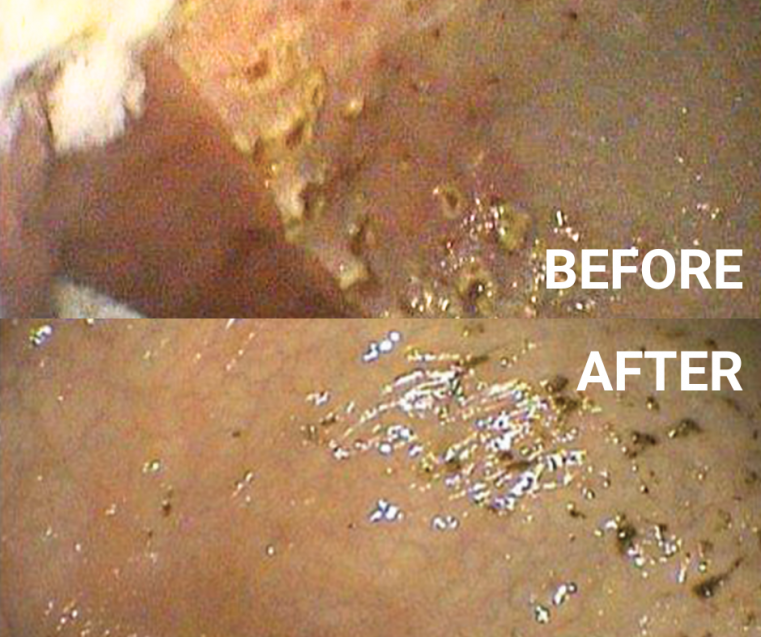
Horses are natural grazers, adapted to a high-fibre, low-starch forage diet. They continuously secrete gastric acid, even when not eating. Modern feeding practices, such as high-grain diets, stall confinement, and intensive training, contribute to a poorly buffered, acidic stomach environment, increasing the risk of ulcers.
Equine Gastric Ulcer Syndrome (EGUS) is a condition where ulcers develop in the oesophagus, stomach, and duodenum of horses. There are two main types: the rarer glandular form affecting foals, and the more common non-glandular form affecting adult horses. Studies have found high prevalence rates in racehorses, broodmares, endurance horses, and competition horses.
The horse's stomach is divided into two regions: the upper non-glandular region and the lower glandular region. The majority of ulcers occur in the non-glandular region, primarily because it lacks a protective layer of mucus and bicarbonate, making it susceptible to damage from stomach acids.
Certain management practices, can have buffering effects on gastric pH, potentially reducing the risk of ulcers. For example, diets rich in calcium and protein, like lucerne fibre, may protect the non-glandular mucosa from acid damage.
To address this issue, Fiber Fresh performed a study that explored the potential of fermented, forage-based feeds, specifically “Modified Bio-Fermentation” lucerne feeds treated with Xanotyde®, known as Fiber Protect®.
Five adult horses with confirmed gastric ulcers participated in a study using Fiber Protect®. In the first 42 days, they were fed Fiber Protect®. Remarkably, by day 28, all horses fed Fiber Protect® were ulcer-free. A significant relationship was found between the duration of the diet and the disappearance of ulcers, meaning the longer the horses were fed Fiber Protect®, the more likely they were to decrease on the ulcer severity scale.
These findings show that Fiber Protect® can effectively heal gastric ulcers in horses. This non-pharmaceutical, natural approach offers a strategy for managing equine gastric ulcers and promoting equine health.
This study highlights the potential for dietary management to address a common and troubling issue in the equine industry. Fiber Fresh is proud to supply this research in hopes that it may further horse owners’ education and support horse welfare.
Although some horses may require medical treatment, it is clear that Fiber Protect may be used to aid in the healing and prevention of gastric ulcers in horses. Read the full scientific study here: https://www.fiber-fresh.com/file/stowers-et-al-gastric-ulceration/open
